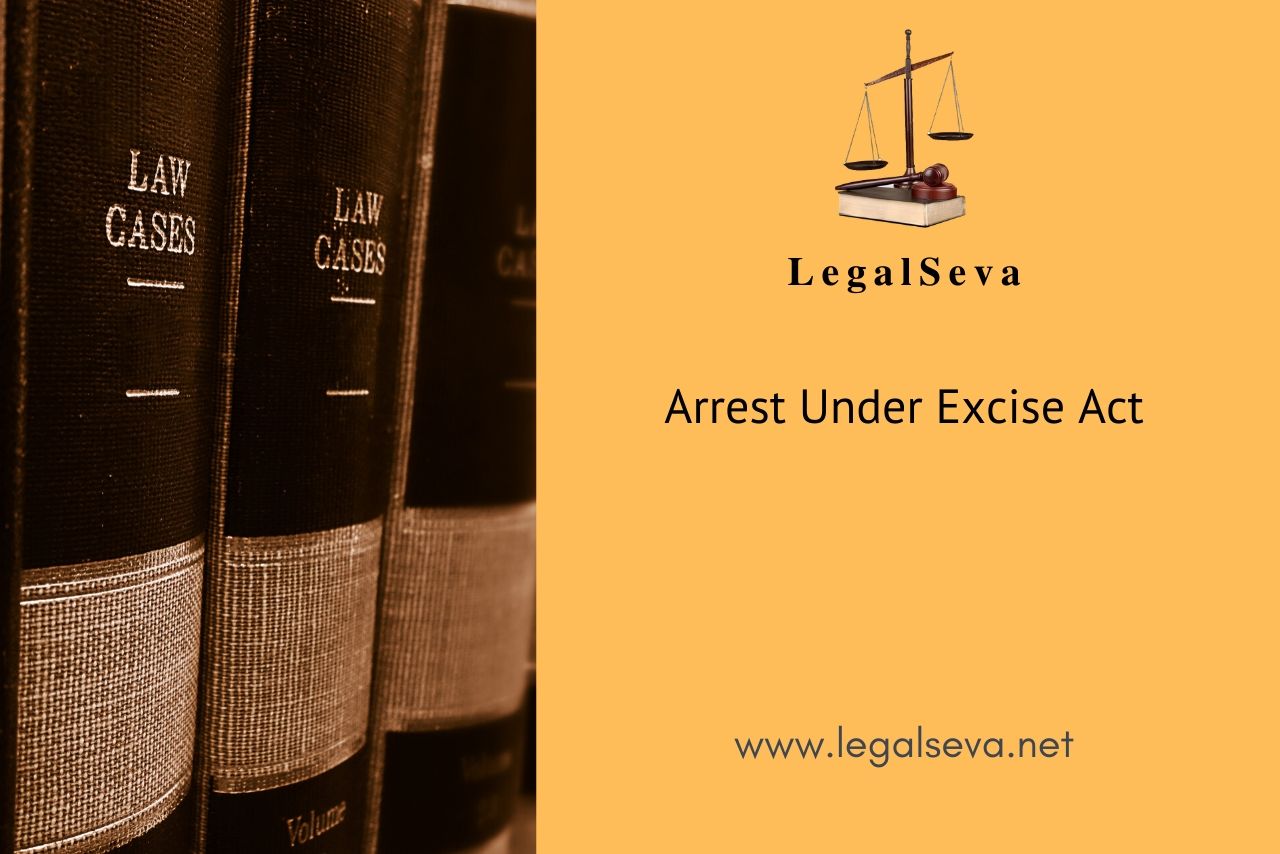Last Updated on December 8, 2018 by Legalseva.net
The Central Excise Act, 1944 was enforced for regulation of implementation and collection of Central excise duty that is imposed on manufacture or production of excisable goods in India.
The Central Excise Officer has been empowered to arrest the persons who practice tax evasion, under this act.
Also Read- CHARGESHEET IN CRIMINAL CASE
PROVISIONS OF ARREST UNDER THE ACT:
Section13. Power to arrest
Any Central Excise Officer not below the rank of Inspector of Central Excise may with the prior approval of the Commissioner of Central Excise, arrest any person whom he has reason to believe to be liable to punishment under this Act or the rules made thereunder.
Section19. Disposal of persons arrested
Every person arrested under this Act shall be forwarded without delay to the nearest Central Excise Officer empowered to send person so arrested to a Magistrate, or, if there is no such Central Excise Officer within a reasonable distance to the officer-in-charge of the nearest police station.
Section21. Inquiry how to be made by Central Excise Officers against arrested persons forwarded to them under section 19
(1) When any person is forwarded under section 19 to a Central Excise Officer empowered to send persons so arrested to a Magistrate, the Central Excise Officer shall proceed to enquire into the charge against him.
(2) For this purpose the Central Excise Officer may exercise the same powers and shall be subject to the same provisions as the officer-in-charge of a police station may, exercise and is subject to under the Code of Criminal Procedure, 1898 (5 of 1898) when investigating a cognizable case;
Also Read- ANTICIPATORY BAIL BASICS
Provided that–
(a) if the Central Excise Officer is of opinion that there is sufficient evidence or reasonable ground of suspicion against the accused person, he shall either admit him to bail to appear before a Magistrate having jurisdiction in the case, or forward him in custody to such Magistrate;
(b) if it appears to the Central Excise Officer that there is not sufficient evidence or reasonable ground of suspicion against the accused person, he shall release the accused person on his executing a bond, with or without sureties as the Central Excise Officer may direct, to appear, if and when so required, before the Magistrate having jurisdiction, and shall make a full report of all the particulars of the case to his official superior.
Also Read- CLOSING OF FIR VIA CLOSURE REPORT
INFERENCE:
Arrest when made ?
- On evasion of duty imposed under the Central Excise Tariff Act, 1985
- Contravention of provisions of the Act
Arrest made by whom ?
Any Central Excise Officer (CEO) not below the rank of Inspector of Central Excise with prior approval of the Commissioner of Central Excise
Who will be arrested?
- Any person who has committed an offence under Section 9 of the Act.
- Any person whom the CEO has reason to believe that he/she is liable for punishment under this act.
Aftermath of the Arrest
The accused must be forwarded to the nearest Central Excise Officer empowered to send person so arrested to a Magistrate, or, if there is no such Central Excise Officer within a reasonable distance to the officer-in-charge of the nearest police station, without any delay.
Also Read- APPLY FOR BAIL BUT WHEN AND HOW?
Power of the CEO equivalent to that of an officer in charge of a police station
The CEO empowered to arrest a person under this act has the same powers to that of an officer in charge of a police station and he can exercise similar powers imposed upon an officer in charge of police, as per the provisions of CRPC,1898.
MANDEEP SINGHAL V STATE OF PUNJAB, July 08,2016.
In this case, bail was granted to a person arrested u/s 9 and 9AA of the 1944 act on the ground of an unauthorized officer, i.e. an Intelligence Officer had been forwarded the accused before the Magistrate, which is violative of Section 21 of the 1944 Act that states that any officer not below the rank of Superintendent of Central Excise has the authority to present a person before a Magistrate.
Thus, bail was granted by the learned Magistrate on additional grounds of completion of the remand period, completion of the investigation, tribunal seized of question of levy of duty and completion of trial would take a lot of period which make a case for grant of bail.
For more info on the subject, please dial 99888-17966


